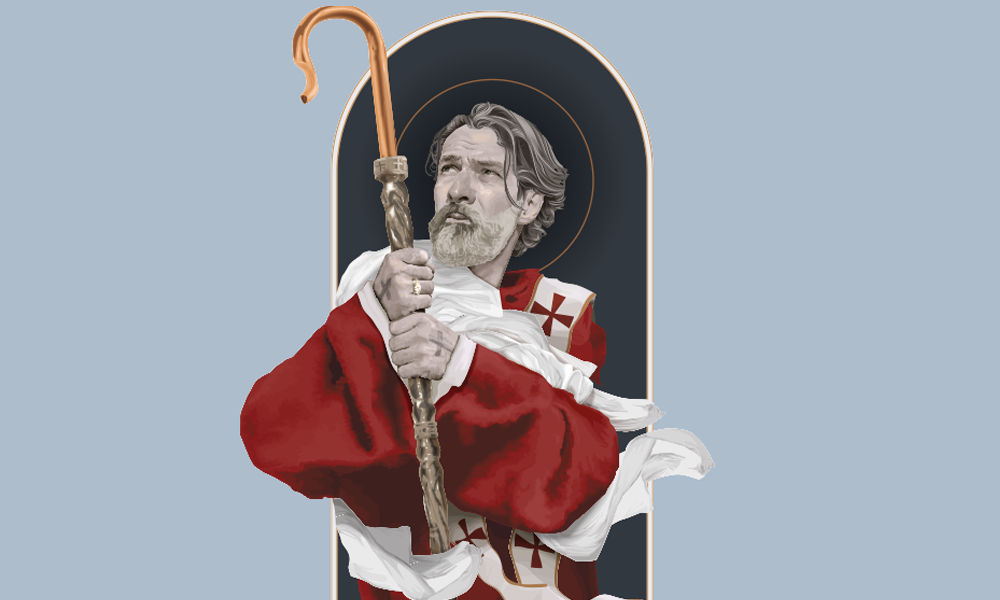
St. Hilary of Poitiers
(310-67)
(310-67)
Feast: Jan. 13
Feast: Jan. 13
Opposition and exile didn’t stop this saint from setting the record straight at a time when heresy was the norm.
Hilary was born in 310 to a pagan family in present-day France and was well-educated in the classics. When he began to study the Old and New Testaments, however, he decided to be baptized into the Church. Although it was a gradual process that led Hilary to dedicate himself to the Catholic faith in 345, there was nothing cautious or measured about his zeal for defending the faith throughout his life.
Despite being married with a daughter, Hilary was elected Bishop of Poitiers in 353. Arianism – a heresy which rejected Jesus’ divinity – was rampant at the time, and Hilary made it his personal mission to eradicate it. His efforts began with excommunicating an Arian bishop, but these initial efforts were short-lived. Hilary stood alone defending Christ’s divinity among a hostile crowd of bishops who supported Arianism, and when these bishops approached the emperor, who supported a modified form of Arianism, Hilary was exiled in 356.
Banishment was fruitful for Hilary, however, as he continued to lead his diocese and wrote his most important works, including De trinitate (On the Trinity), the first successful attempt to explain the Trinity as promulgated by the Council of Nicaea. He also wrote the first commentary in Latin on the Gospel of Matthew, and penned commentaries on many psalms. Throughout his exile, Hilary pushed often for public discussions to set the record straight on trinitarian principles; the requests became so frequent that he was eventually sent back to his diocese around 361. Hilary’s later years were spent quietly, and he continued to write until his death in 367.
Because his writings were so influential, Pope Pius IX declared St. Hilary a Doctor of the Church in 1851.



